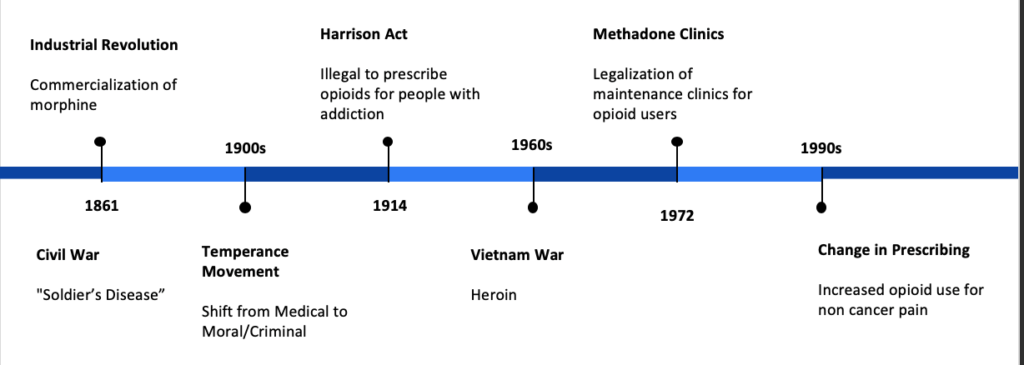HIGHLIGHT: RIOTing Against Opioids
Eight months ago, the state of New York issued a ban on all flavored vaping products. Bernie Sanders released a new tax plan aimed at directly combating income inequality. Protests in Hong Kong or Moscow grew more tense with every passing day. Puerto Rico was struck with a 6.0 magnitude earthquake on the Richter scale. The House launched a formal impeachment inquiry against President Trump.
Six months ago, when a job interviewer asked me if I keep up to date on the news, I could have given them a full crash course on any of these top stories. But when asked for my thoughts on the opioid crisis, I knew much less.
So, in January 2020, when I heard that a group of Rutgers students had established an organization dedicated to educating the people of New Jersey about the opioid crisis, I was excited to find out more. I visited the group’s official website, poked around their contact information and questioned several members over email.
It wasn’t long before I was put in contact with Mrs. Muzdalifa Ayub Syed, a graduate student at Rutgers School of Public Health and the co-founder of the RIOT (Rutgers Interdisciplinary Opioid Trainers) program. Mrs. Syed completed her Rutgers undergraduate education with a B.A. in Biological Sciences and holds a Certificate in General Public Health. She is expected to graduate this coming May with a Master of Public Health degree with a concentration in Social and Behavioral Health Sciences. She seemed energetic and excited about the community services currently provided by the RIOT program, but I was most interested in where it all began.
“I was recruited by Dr. Jill Williams”, Syed told me in an interview. “She asked me if I was interested in a research project addressing the opioid crisis, and I said yes. As I work with our students and community members, I see how much of a need there is to increasing education about Opioid Use Disorder and I’m considering to continue this work post-graduation. We have students from the School of Public Health, the Medical School, the School of Pharmacy, the School of Social Work, so it varies, honestly.”
Syed went over the project’s growth since its inception in the Summer of 2019. She credits another student, Ariel Tabachnik, as a huge asset in the early stages. She recalls being awakened for the need for such a program as she got deeper into creating one. Formal education had been the first to teach her about the existence of an opioid crisis, but her work with the RIOT program opened her eyes to its severity.
The RIOT Program provides free PowerPoint presentations detailing multiple facets of the crisis. The presentation, delivered by two or more RIOT students, begins with a timeline detailing America’s past encounters with widespread painkiller addictions. This segment, titled “Not a New Problem”, dates back to the Civil War, during which painkiller addictions were known as “Soldier’s Disease ”.

The presentations go on to discuss the spread of opiate addictions through the state of New Jersey as well as the United States at large, eventually branching out into short primers on more advanced topics such as the activation of reward pathways in the brain that facilitate a growing dependence on addictive drugs.
In talking about the creation of the PowerPoint, Syed was grateful that the program had been able to recruit so many different students from different Rutgers graduate programs.
“There are so many different points that we address: we discuss the history, the medicine, and the drugs part of [the crisis],” said Mrs. Syed. “I’m sure that hits home for example with Pharmacy students, who are probably distributing these drugs at their pharmacy rotations.”
Managing the RIOT program is hard work, and the RIOT students have been working around the clock to deliver presentation after presentation in the coming months. Mrs. Syed notes that the volume of requests for RIOT events has picked up drastically since the turn of the new year, and that she and her team have filled up their presentations schedule into April.
The group also gathers information about public awareness of the crisis through a Pre- and Post-Presentation survey given to each viewer of each session. Of the questions asked, Syed picked out one as the most revealing.
“We have one question on the survey that asks people if they know anyone who has been impacted by the crisis and the responses so far have shown us how far-reaching the effects have been in New Jersey. You might not have been personally affected by Opioid Use Disorder, but I’m sure you know someone else who has.”
For more information on the Rutgers University RIOT Program, and for information about coordinating a presentation, click here.
